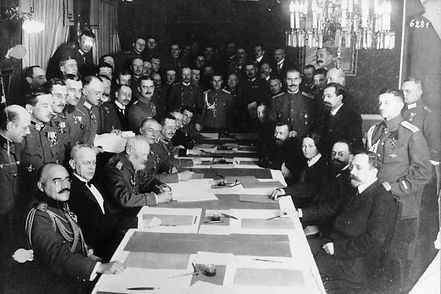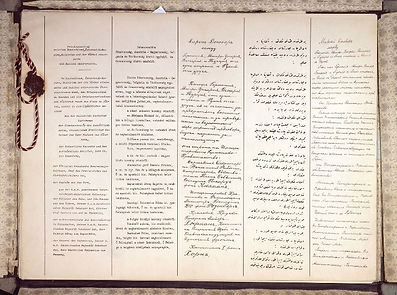Ms. Zakalik
U.S. History
World War I
Treaty of Brest-Litovosk


The Treaty of Brest-Litovsk, signed between Germany and Russia on March 3, 1918, ended Russian involvement in World War I. The Russians strived to reach peace because at the time, Russia was in the middle of the civil war where the Bolsheviks party led by Vladimir Lenin was leading a revolution. Lenin realized that the Russians needed to focus on their own country at home and wanted to remove Russia from WWI. Therefore, Lenin urged peace no matter what it might cost Russia and had the Treaty of Brest-Litovsk approved.
Under the Treaty of Brest Litovsk, Russia recognized the independence of Ukraine, Georgia and Finland. It also gave up Poland and the Baltic states of Lithuania, Latvia, and Estonia to Germany and Austria-Hungary. Kars, Adranan, and Batum were given to Turkey. Russia lost a total of 1 million square miles, 55 million people (1/3 of its total population), much of its industry, and majority of its coal, oil, and iron stores. Allies viewed Russia's removal from the war as a betrayal because it made Germany stronger. Germany was able to move soldiers from Russia to the Western fron to concentrate its forces against the Allied Powers. The Allies were also upset because they lost the support of Russia's army and supplies in the fight against the Central Powers.